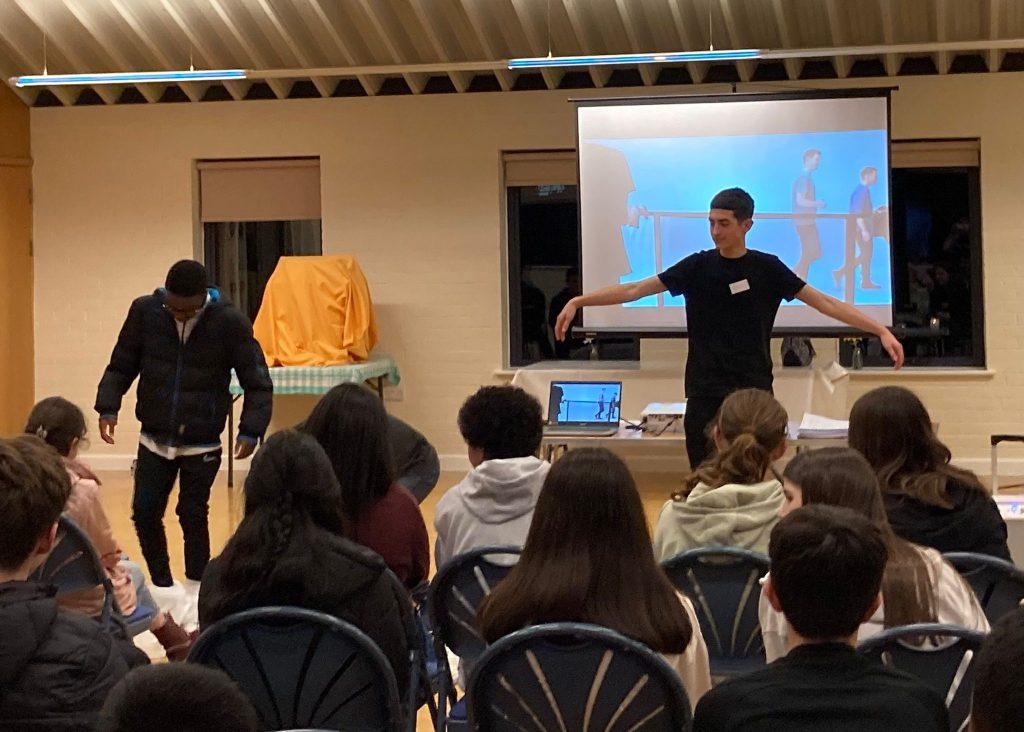The focus of this week’s session was “Why did Jesus die?” During the session we looked at Christ’s ultimate sacrifice for our salvation, and why God sacrificed himself for us.
Before the session began the candidates placed their phones in the box by the doorway.
At the start of the session we began with a prayer. This time, one candidate read John 3:16:
“For God so loved the world that he gave his only Son, that whoever believes in him should not perish but have eternal life.”
In a way this already answered the question proposed to us “Why did Jesus die?” and how it was out of God’s everlasting love for each and every one of us that he died.
After the opening prayer we watched a video which explored the topic of today’s session, and explained why Jesus chose to die for us. At the end of the video, the facilitator presented us with a question that we would contemplate and discuss in our groups. The question was: “How do you see sin in the world?”
To answer this question, I went around each person in my group. Some responses included “hate speech or a hatred of others” or “war (in particular the conflicts In the Holy Land and in eastern Europe)”. We also discussed the sins we ourselves commit and how they can affect the world. When I mean the world, I do not mean the other eight billion people on this planet, but our friends and families. Whether it is shouting/swearing in anger at a loved one or taking food from the kitchen that isn’t yours, we have all committed sin which negatively affect others. Sometimes we consider these factors before we do them, and sometimes we forget the danger of committing sin that we sometimes play off saying “oh it’s not serious” or “I only did this, it’s not as bad as this…” These justifications for our own sin must be dismantled and destroyed and we must try not to come up with excuses. When we do so, we fall into the evil-one’s trap and we must remind ourselves that every sin, no matter how small or seemingly insignificant, is an affront to God and that we must come before God and repent. We must remind ourselves of the importance of the Sacrament of Confession and we must make sure to only receive the Eucharist when we are in a state of grace with God and not in a state of mortal sin.
After this discussion we began a demonstration in which one candidate put on a white overall, then the lead catechist, Anthony, asked the candidates what sins people commit and these were written onto the white overall with a sharpie. As much as the candidate tried to remove the sins once they were on there he couldn’t. It was only when the candidate playing Jesus removed the white overall (which represented our attachment to sin) that the sins disappeared. This represents God’s everlasting forgiveness which he shows to all of us.
We then prepared for the Stations of the Cross in the Church. Readers were selected from among the groups and were assigned stations. Now for most of the candidates this was a new experience; most of them had never prayed the Stations of the Cross before. It was a wholly new, exciting experience, however, the candidates remembered to remain reverent and solemn and as the stations went on this sense of solemness and respect for Christ grew. It started with the parishioners being the only ones to genuflect at the “We adore you O Christ and we praise you… Because by your holy cross you have redeemed the world.” But as the service went on more of the candidates realised the significance of the genuflections and the need for humbleness before Our Lord. This was truly beautiful to watch.
After the Stations of the Cross the session came to a close and now the candidates and the catechists look forward to the next confirmation session, and coming closer to Christ and increasing our understanding of our Saviour.
May God Bless you and keep you all.




